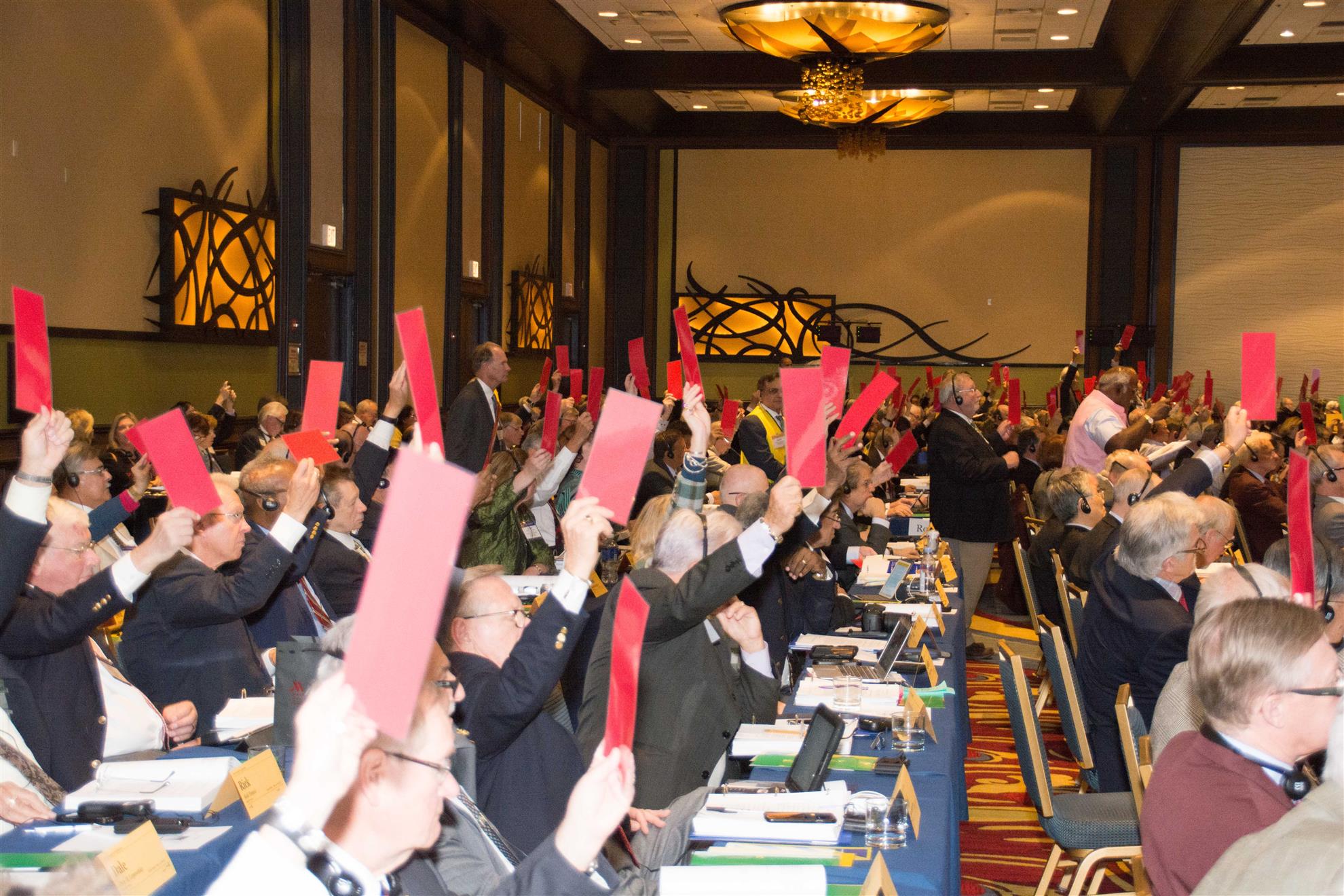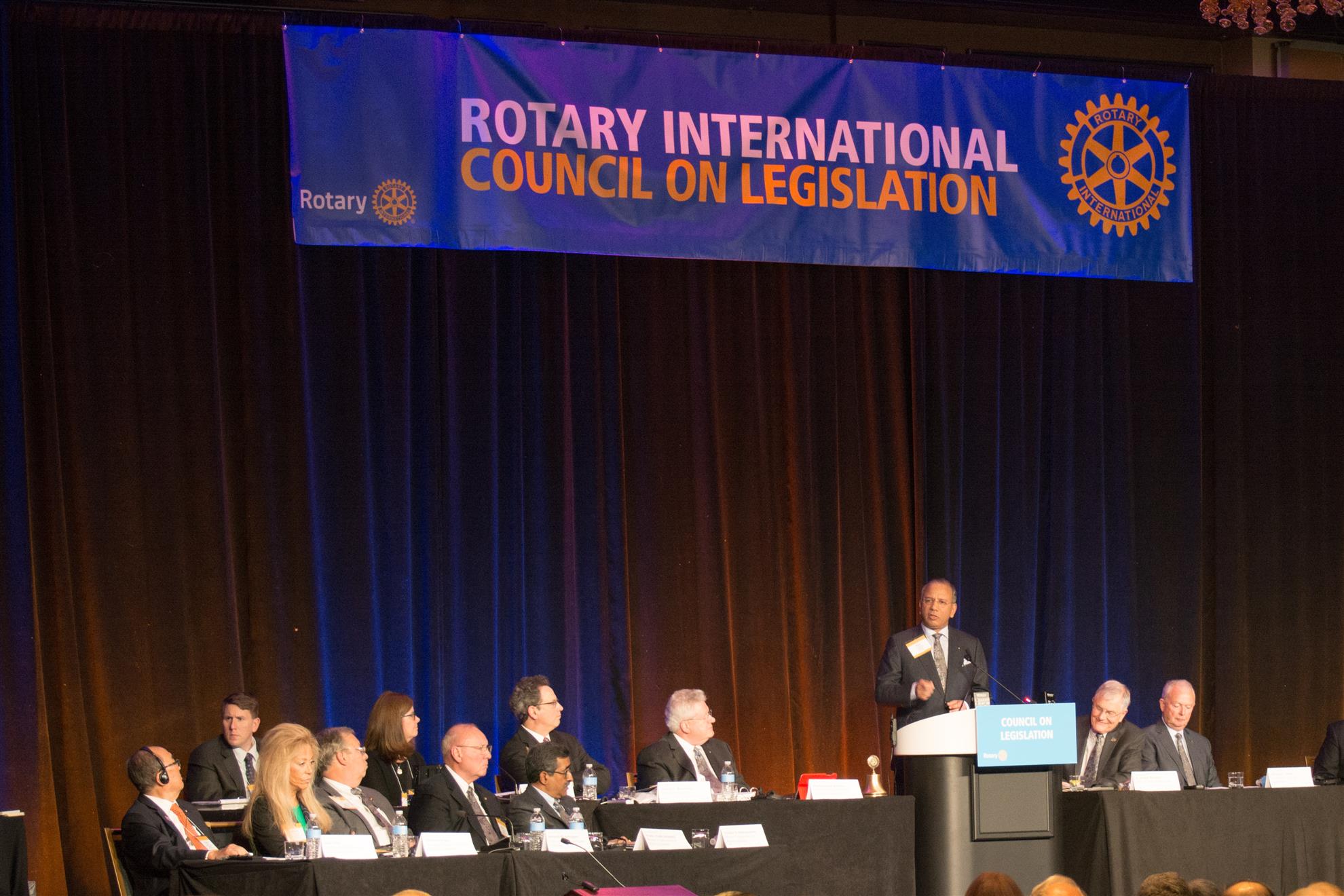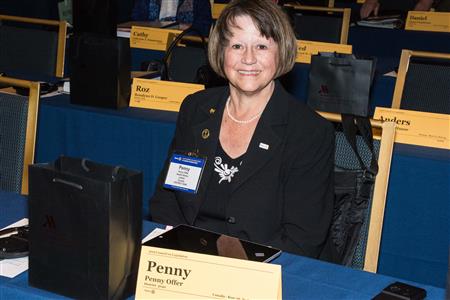2016 COL Gives Clubs Flexibility
Posted by Penny Offer
on Apr 19, 2016
The Council on Legislation approved two key measures that will give clubs greater flexibility in their meetings and membership. Both were proposed by the RI Board of Directors and passed overwhelmingly after vigorous debate.
The first measure gives clubs greater autonomy in when and how often they meet, how often they cancel meetings, and what constitutes a meeting, as long as they meet at least twice a month. Clubs may also meet twice a week. A model being used in several locations to offer members a choice of meeting times.
The second change gives clubs flexibility to experiment with membership models. The new membership opportunities are included in ‘active’ membership which means they must pay RI and district dues. Clubs may adjust the club dues for the new membership types if they wish.
Clubs must opt into these new models of meeting times and membership and change club bylaws. They are not imposed on clubs unless the club chooses to make changes to meeting times and types of membership.
The new meeting rules and new membership types available to clubs will only be an advantage to clubs if they have a strong vibrant club, engaged members and ask people to join Rotary.
The COL agreed to simplify the qualifications for membership in a Rotary club. The measure removes six membership criteria from the RI Constitution, replacing them with "adult persons who demonstrate good character, integrity, and leadership; possess good reputation within their business, professions, and /or community; and are willing to serve in their community and /or around the world". Advocates argued that the amendment will give power back to clubs to choose their own members without a checklist and encourage membership growth.
An enactment would have allowed districts to add a descriptive name; such as District 5040 British Columbia. There is nothing stopping districts from doing this. The enactment would make this official and could create many problems when districts share an area. The enactment was passed and then reconsidered and rescinded.
There were long debates about the role of the Vice Governor. Many districts asking for clearer rules on how the person will be selected and when they would take over management of the district. No substantive changes were made.
The RI Board presented a persuasive case for a dues increase. The Council approved three $4 increases in the annual per capita dues that clubs pay to Rotary International. The increase sets annual the dues at $60 in 2017-18, $64 in 2018-19, and $68 in 2019-20.
Council approved the creation of a Council on Resolutions, a separate governing body that will meet online every year. It will review resolutions sent by clubs and districts to the RI Board. This leaves the triennial COL to deal solely with enactments, which change Rotary's governing documents. The change could save $300,000 by shortening the Council on Legislation by a day.
Representatives also voted to allow Rotaractors to concurrently be members of Rotaract and Rotary clubs. This will assist Rotaractors moving to Rotary without the loss of their friends and network. Only about 5% of Rotaractors join Rotary. Suggestions to change the age of Rotaract membership were defeated both to decrease and increase the maximum age.
Representatives from 530 Districts around the world debated and voted on 181 proposed enactments and resolutions at the 2016 COL April 10 to 15 in Chicago. The decisions made provide flexibility to clubs and an opportunity for the future of Rotary – Rotary democracy in action!
For further information contact PDF Penny Offer at pennyoffer@live.ca
 |
 |
.jpg) |
 |
.jpg) |
.jpg) |
.jpg) |
.jpg) |
.jpg) |
.jpg) |
